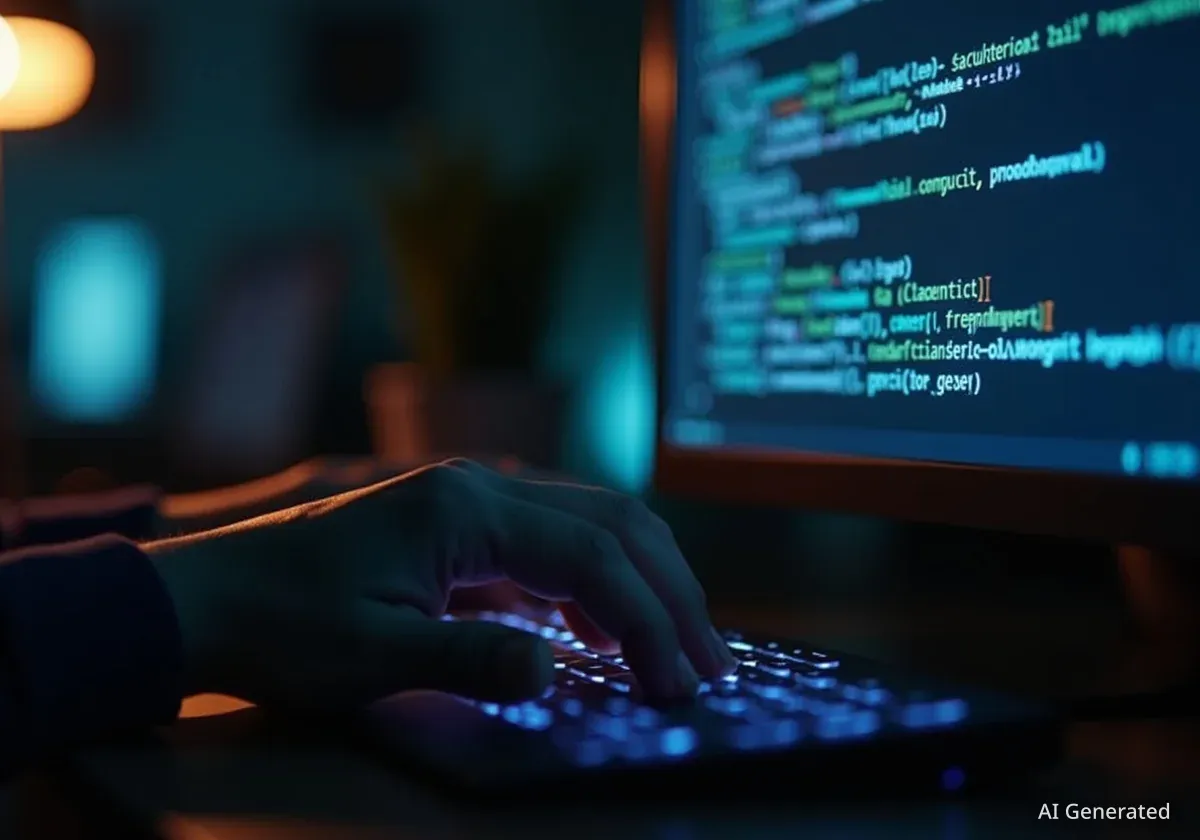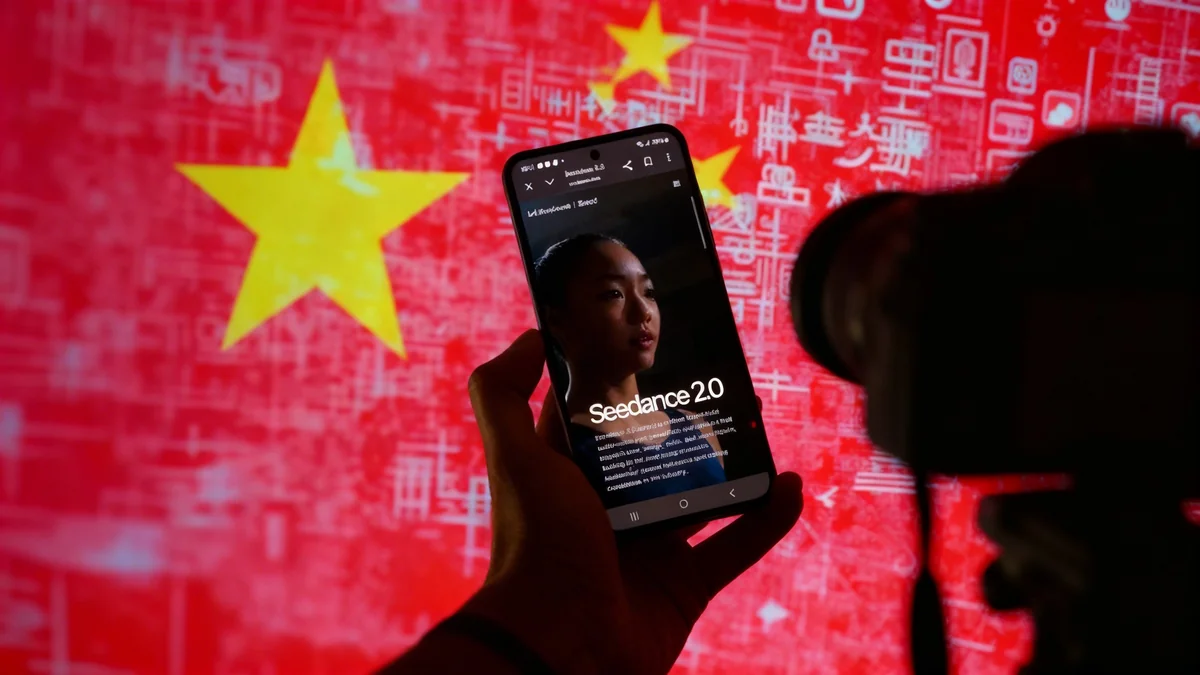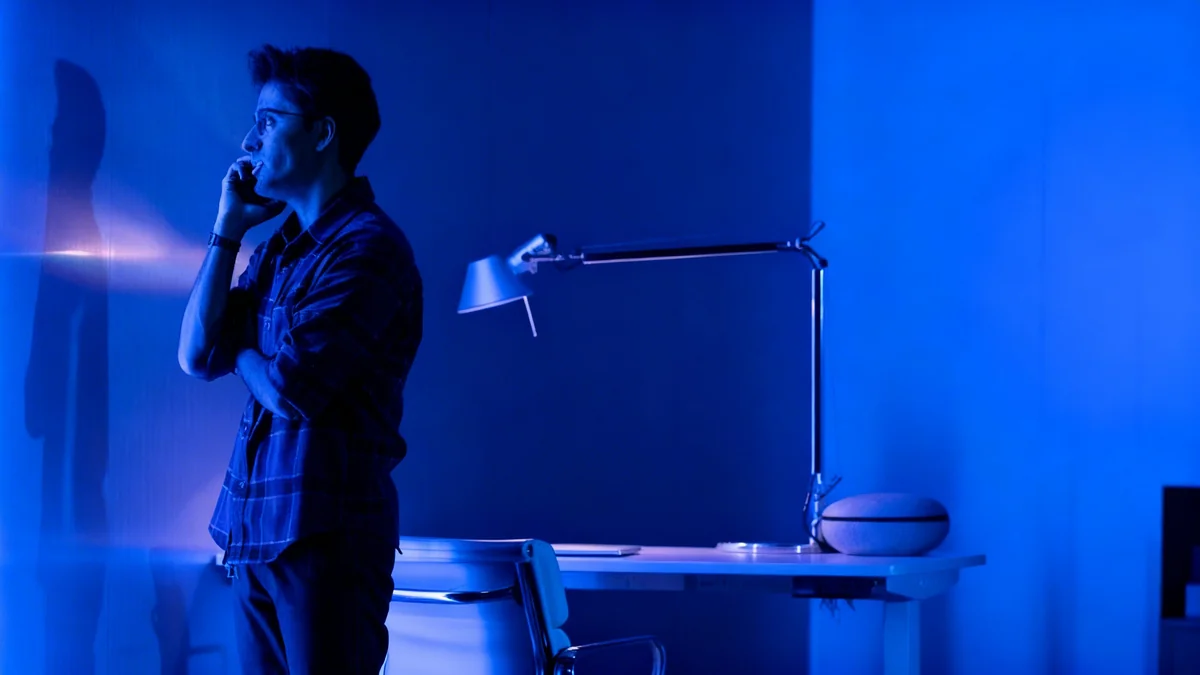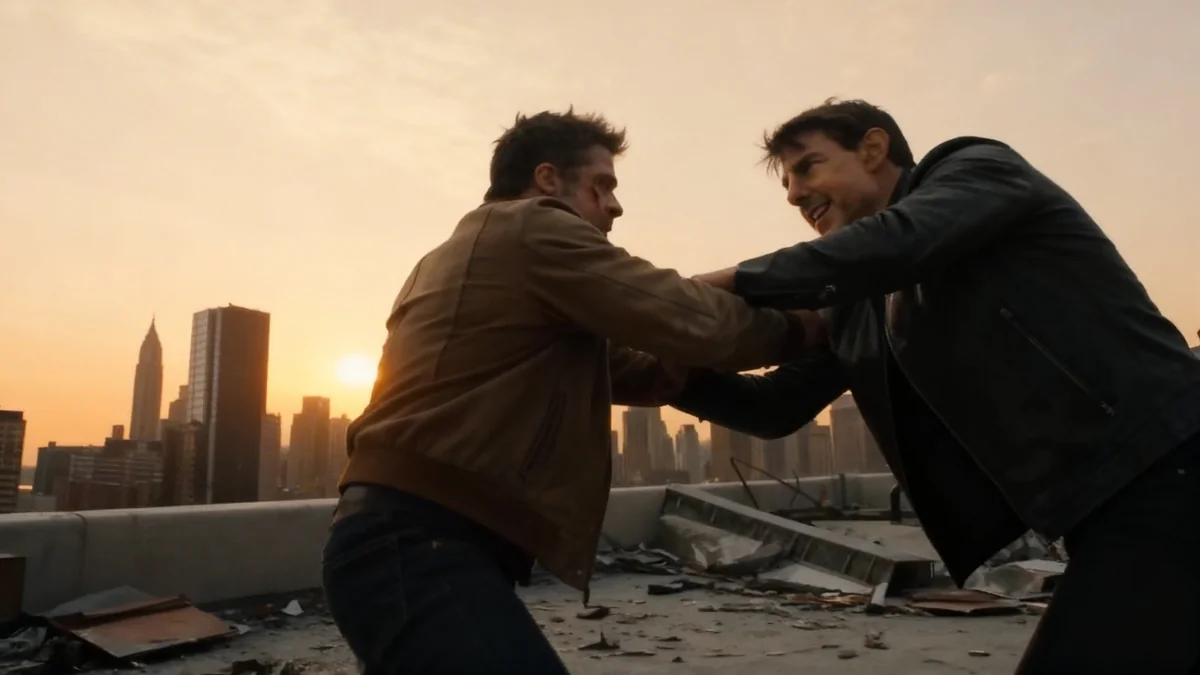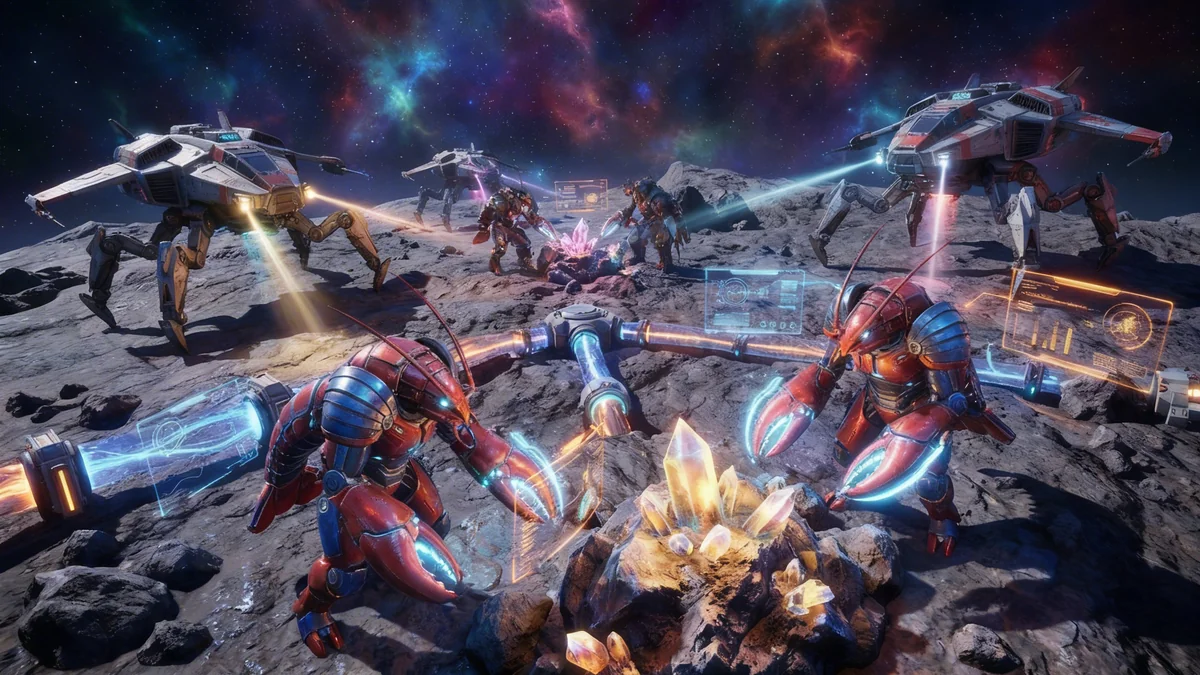Pop superstar Taylor Swift is facing criticism from fans and online observers following a promotional campaign for her new album, “The Life of a Showgirl.” The campaign featured short videos that appear to use artificial intelligence, a technology the artist has previously spoken out against.
The controversy centers on a global treasure hunt where fans could find and scan QR codes to unlock the videos. Observers quickly noted visual inconsistencies in the clips that are characteristic of current AI video generation tools, sparking a debate about the artist's use of the technology.
Key Takeaways
- Taylor Swift's promotional campaign for her album “The Life of a Showgirl” used videos with signs of AI generation.
- Fans located QR codes in 12 cities, which led to short video clips containing visual errors.
- The artist is being criticized for using AI after previously warning about its dangers, such as deepfakes and misinformation.
- Swift's team has not yet commented on whether AI was used to create the promotional content.
- The situation highlights the ongoing tension between artists and the use of AI in creative fields.
Details of the Promotional Campaign
The promotion for “The Life of a Showgirl” was designed as an interactive, worldwide event. It challenged fans to locate 12 orange doors placed in 12 different cities across the globe. Each door featured a QR code that participants could scan with their mobile devices.
Scanning the codes unlocked exclusive short video clips. However, some of these videos contained unusual visual elements that led to speculation about their origin. The global nature of the hunt generated significant online discussion as fans shared their findings and theories.
Visual Clues Spark AI Speculation
Several videos from the campaign displayed distinct visual anomalies commonly associated with AI-generated content. These imperfections were quickly identified and shared across social media platforms.
One video, reportedly unlocked from a QR code in Barcelona, depicted a gym inside a high-rise building. Viewers pointed out that the weights and handles on the exercise equipment did not align correctly, creating an unnatural appearance. Another video showed an Art Nouveau-style bar scene with several subtle errors, including:
- A framed picture on the wall showing a blurred and indistinct house.
- A book with missing or nonsensical letters on its cover.
- A bartender's middle finger appearing to blend into an orange napkin he places on the counter.
These types of visual distortions are well-known hallmarks of current AI video generators like OpenAI's Sora, which was introduced to the public last year. The technology is known for creating realistic scenes but often struggles with fine details like hands, text, and object consistency.
AI in Video Generation
Generative AI for video has advanced rapidly. Tools like OpenAI's Sora, Runway, and Pika can create short video clips from text prompts. While impressive, these models often produce subtle errors, especially with complex details like human anatomy or the physics of object interaction, which serve as tell-tale signs of their use.
Fan Reaction and Accusations of Hypocrisy
The discovery of these AI-like elements in the promotional videos led to a wave of disappointment and criticism from many fans and creative professionals. The reaction was particularly strong given Swift's past advocacy for artists' rights and her previous comments on the dangers of AI.
Online forums, including Reddit, became hubs for discussion. Many users expressed that the move seemed inconsistent with her public persona as a champion for human artists.
“For someone who has made a big deal about how artists aren’t paid appropriately for like, most of her career, this is tone deaf AF,” one user commented on Reddit.
Another user expressed their disappointment, writing, “Nooooo, not Taylor too. She’s too rich for this.” The comments reflect a sentiment that an artist of her stature should be supporting human creators rather than utilizing automated technologies that many in the arts community see as a threat to their livelihoods.
Swift's Previous Stance on Artificial Intelligence
The criticism is amplified by Swift's own documented concerns about AI. Last year, she addressed the issue after AI-generated deepfake images of her circulated on the social media platform X (formerly Twitter). The fake images purported to show her endorsing former U.S. President Donald Trump.
At the time, she took to Instagram to voice her concerns about the technology's potential for harm.
In a 2024 Instagram post, Swift wrote, “It really conjured up my fears around AI and the dangers of spreading misinformation.” This public statement established her position on the potential negative impacts of artificial intelligence.
Her past comments on protecting artists from exploitation and ensuring fair compensation have also been a cornerstone of her career. This history has made the apparent use of AI in her own marketing materials seem contradictory to many observers.
The Broader Context of AI in Creative Industries
This incident with Taylor Swift's promotion does not exist in a vacuum. It comes at a time of intense debate and legal conflict over the role of AI in the arts and entertainment industries. Many creators and rights holders are concerned about AI models being trained on their copyrighted work without permission or compensation.
Numerous high-profile lawsuits are currently underway between artists, publishers, and major tech companies. These legal battles are shaping the future of copyright law in the age of AI.
Key Legal Challenges
The creative industry is actively pushing back against what it sees as the unauthorized use of its work to build commercial AI products. Notable legal actions include:
- Music Publishers vs. Anthropic: A group of music publishers, led by Universal Music Group, is suing AI company Anthropic. They allege that Anthropic's AI model was illegally trained on their copyrighted song lyrics. The company recently failed in a bid to have parts of the lawsuit dismissed.
- Artists vs. AI Developers: Many other lawsuits have been filed by artists, authors, and their representatives against tech giants like OpenAI, Meta, and Microsoft. These cases argue that training AI models on vast amounts of copyrighted material from the internet constitutes copyright infringement.
The outcomes of these cases are mixed so far, but they will be critical in defining the legal boundaries for training and using generative AI. The controversy surrounding Swift's promotional videos highlights the sensitivity of this issue, where public perception and artist credibility are also at stake.
